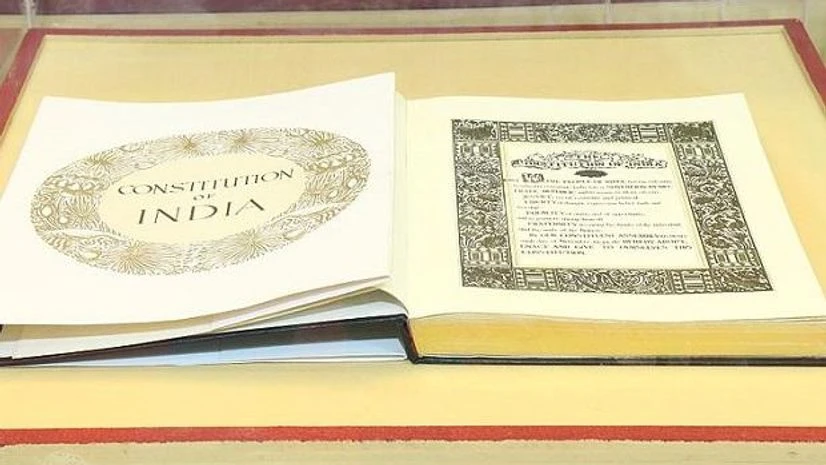Article 1 of the Constitution, 1950 states that India, that is Bharat, shall be a union of states, and the territory of India consists of that of the states, Union territories specified in the First Schedule and other acquired territories.
The first debate on Article 1 of the Constitution of India was to begin on November 17, 1948. However, at the suggestion of Govind Ballabh Pant, the discussion was postponed.
What are the various debates on 'India' and 'Bharat'?
On September 17, 1949, B R Ambedkar presented the final version of the provision to the House, which included both "Bharat" and "India".
Following this, several members of the House were against the use of "India" as they said it was a reminder of the colonial past.
Activist Seth Govind Das preferred "Bharat" over "India", and several other members agreed as they said that "India" was a substitute for "Bharat" in the English language.
"India, that is, Bharat are not beautiful words for the name of a country. We should have put the words, "Bharat known as India also in foreign countries," Das said.
More From This Section
Lok Sabha member Hari Vishnu Kamath said that the word "India" was only a translation of "Bharat".
Kamath said, "If honourable colleagues in the House would take the trouble of referring to the Irish Constitution passed in 1937, they will see that the Irish Free State was one of the few countries in the modern world which changed its name on achieving freedom; and the fourth article of its Constitution refers to the change in the name of the land."
He further added, "The Constitution of the Irish Free State reads: "The name of the State is Eire, or, in the English language, Ireland".
Hargovind Pant, a member of the Constituent Assembly who represented the hill districts of the United Provinces, said that the people of Northern India "wanted Bharatvarsha and nothing else".
Pant said, "We must know that this name was given to our country by foreigners who, having heard of the riches of this land, were tempted towards it and had robbed us of our freedom in order to acquire the wealth of our country. If we, even then, cling to the word "India", it would only show that we are not ashamed of having this insulting word which has been imposed on us by alien rulers."
What are the ancient references?
Das said that the Vishnu Purana and Brahma Purana mention the name "Bharat".
He said, "But by naming our country as "Bharat", we are not doing anything which will prevent us from marching forward. We should indeed give such a name to our country as may be befitting our history and our culture."
Kamath suggested "Bharat", or "Bharatvarsha", or "Bharatbhumi", as possible names that are derived from scriptures.
He said, "Historians and philologists have delved deep into this matter of the name of this country, especially the origin of this name, "Bharat ". All of them are not agreed as to the genesis of this name "Bharat". Some ascribe it to the son of Dushyant and Shakuntala who was also known as "Sarvadamana" or all-conqueror and who established his kingdom in this ancient land. After him, this land came to be known as "Bharat".
What was Ambedkar's stance?
In the House, Ambedkar said that the civilisational debate was unnecessary since the name "Bharat" was not opposed by any of the members of the House.
"We are merely now discussing whether the word "Bharat" should come after "India"," he said in response to Kamath's intervention.
Kishori Mohan Tripathi, a member of the Constituent Assembly, said that the word "Bharat" reminds everyone of the past glory of India.
Following his comment, Ambedkar asked if this was necessary.
"There is a lot of work to be done," he said before the motion was adopted.

)
